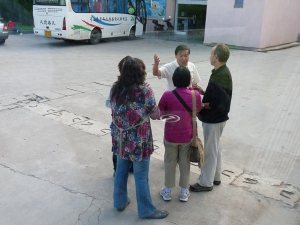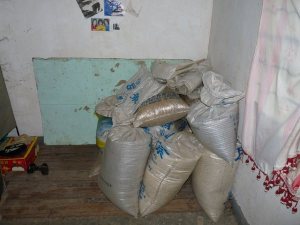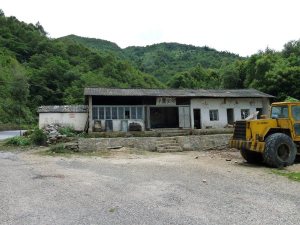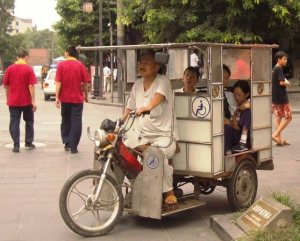Third time’s a charm–for piano lessons
Yesterday I took a lesson from Rowena Arrieta, a world-class pianist! My son was too tired from the previous day’s Science Olympiad to go for his lesson, so I used his time slot. And Rowena was so very gentle to me.
My wife has been pushing me to start taking piano lesson for a while now. But I always hesitated. I didn’t feel that I could commit to consistent practice, although I do practice quite often. But my wife insisted. And we know that Rowena has been very nurturing to our children. So I finally said: ok, I’ll give it some more serious thought. Maybe after the children had taken their guild tests, I thought. I didn’t realize, until the night before, that my first opportunity to ask was yesterday.
It was a wonderful experience. I learned quite a few things. And I was happy that they were easy to understand, although I have to practice to get them right consistently. I can hear the improvement immediately in the sound of the music that I play.
As it turned out, this is my third piano lesson! (I had no formal lesson in any other musical instrument.)
When I was growing up in China, we had preciously little in terms of possessions as well as opportunities. Luckily for me our family moved to a place close to an aunt of mine, who was a pianist. They had a piano at their home, and I started to take piano lessons with my aunt.
I still kind of remember the first and only piece of music I learned. It was on "C position", where the ten fingers are each placed on a white key, and stayed there for the whole time. I think it was titled "steps", as on the right hand it’s almost like playing the first five notes of the C-scale. There was no piano, or any other keyboard instrument, at our apartment, so of course I didn’t practice between lessons. I didn’t have the music book either–it was my aunts. But the piece of music is kind of simple, and before the second lesson I could play by imagining seeing the music, and the piano in front of me.
Somewhere during my second lesson, a neighbor came to talk to my aunt, and because I was in the middle of the piece, my aunt told me to keep playing, and stepped outside to talk. It was at that moment I made my fatal mistake–I cut corners. The piece ended with three long notes, two of them (on the right hand, possibly sharing a single note on the left hand, but I can’t be certain of it now) were supposed to be two beats, and the last one was four beats. I cut all of them short. When my aunt came back, she declared that I was not musically talented, and ended my chance of learning to play piano.
Nobody expected me to become a pianist, so nobody was upset at the determination that I wasn’t good at it. I felt a little guilty as well. I was in high school already, and I could certainly count my beats. But I didn’t hold the notes long enough, because I didn’t see the point. Ok, when things were happening, like when there were other notes to be played, I understood that cutting some notes short would make them not nicely spaced out. But this was at the end of the piece, where the notes were taking up a long time already, cutting them short didn’t feel so terribly bad. Besides, I was secretly hoping that by cutting those notes short, I’d finish up before my aunt came back, and if she wasn’t listening carefully while she talked to the neighbor, we could move on to something new–like a new piece of music!
As years went by, my feelings started to change. I started to feel less guilty of not being able to keep the note values, and more sympathetic to the childhood me. I freely admit that I was not doing what I was told, but that was not necessarily all that bad. If I knew some more about the importance of keeping the beats, about the advantages I could gain by paying attention to every detail, and the disadvantages that come with not doing so, I might have played differently. But even then, I might not have.
I’m much more tolerant to young people partly because of what I was. I was obedient, never (ok, almost never) talked back to the adults around me, and consequently never had myself understood by any one of them. I know children can have very valid thoughts and feelings, but may have very little courage, confidence, opportunity and expressive facilities to make them known. As adults, we are privileged with size, experience, confidence and control of language. We should not need to use "status" as an additional tool for our discourse. With it, we can surely win every argument with children, whether ours or other people’s. But without, we’ll be able to win over their hearts. At least more easily.
Thinking back, I don’t think I’d ever have become a musician, even if I didn’t make the mistake I did when I took my second piano lesson. But, I might have been able to enjoy music more over the years, if I understood music better.
Although, it’s never too late.
Again, thank you so very much, Rowena.
And mostly, many thanks to my loving wife, whose instigation and persistent encouragement led to this wonderful gift for my birthday.
Third time’s a charm–for piano lessons Read More »


































